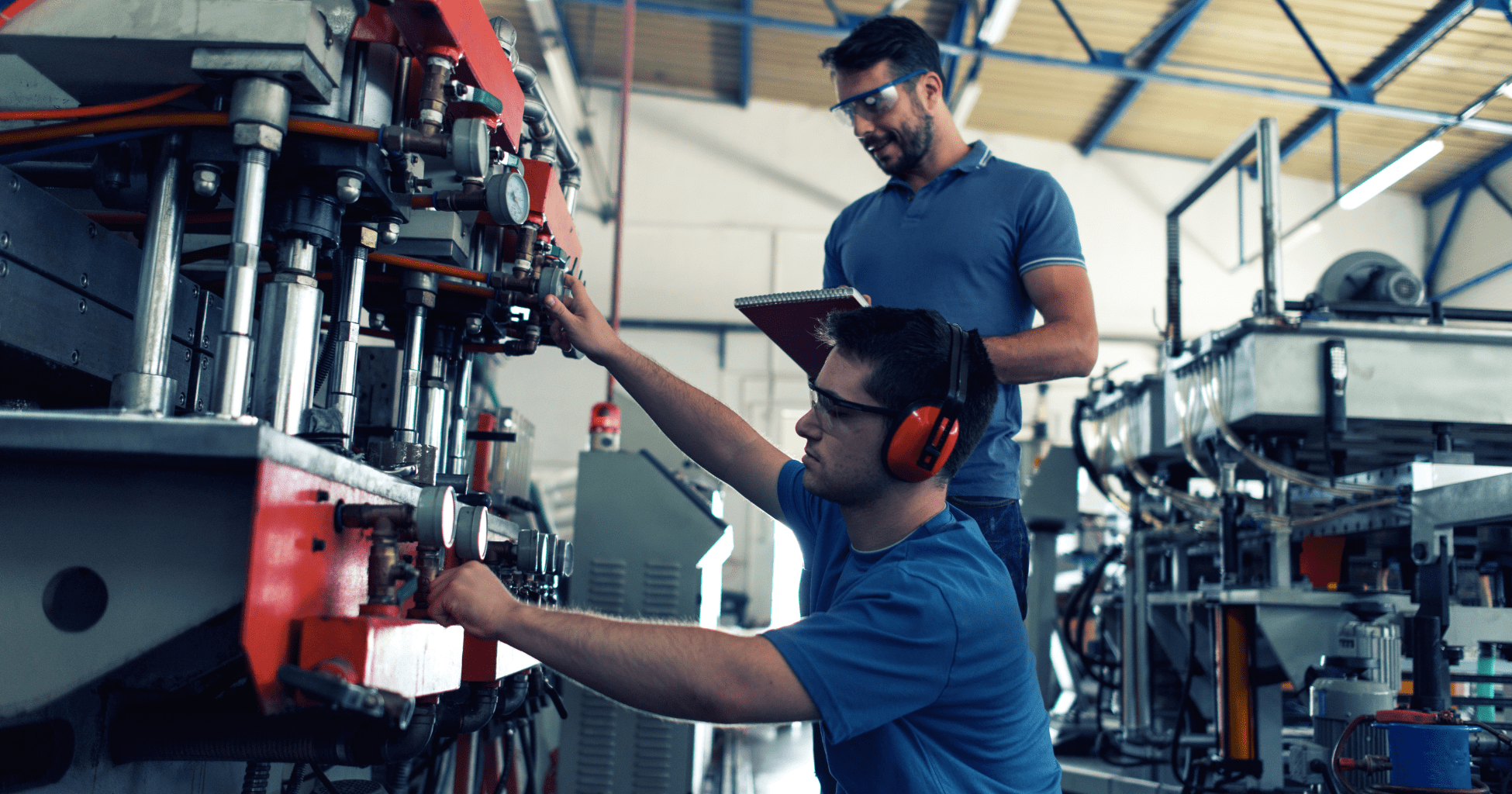Hiring for Manufacturing in the Industry 4.0 Era

Manufacturing is rapidly evolving, thanks to Industry 4.0. That means hiring for manufacturing roles is a lot different now, too. Today’s smart factories are data-driven, which requires a whole new class of factory workers. While this presents challenges for recruiters and hiring managers, it also opens up many new career opportunities.
Digital technologies, artificial intelligence, and automation are now the name of the game. Whether you’re looking for a new class of manufacturing worker or you’re looking to break into manufacturing in the Industry 4.0 era, here’s what you need to know.
What is Industry 4.0 and How Has it Changed Manufacturing?
Industry 4.0, also known as the Fourth Industrial Revolution, integrates intelligent digital technologies into manufacturing and industrial processes. Industry 4.0 optimizes manufacturing businesses with data-driven, optimized processes by combining production technologies and IT. Organizations are using Robotics, the Internet of Things (IoT), Big Data, AI, and analytics to create modern and efficient manufacturing operations.
You can think of Industry 4.0 as part of a more significant shift toward automation across all industries and market sectors. The World Economic Forum’s Future of Jobs Report says that by 2025, some 85 million jobs will have been displaced by automation — but as many as 97 million new roles may emerge from this shift.
The manufacturing industry historically suffered from millions of unfilled positions at any given time. Robotics and automation helped fill some of the gap, but Industry 4.0 has created new needs. Tech jobs like data scientists or AI specialists might be among the top roles recruiters are searching for.
The New Class of Manufacturing Jobs
Along with the changes that Industry 4.0 brought to the manufacturing industry is a new class of jobs. While many of these positions would have been unthinkable in a manufacturing context a few years ago, these are now the roles that recruiters and hiring managers seek. Workers with education and skills in these areas now have the opportunity to enter the manufacturing field that didn’t exist before.
Data Scientists
AI plays a prominent role in Industry 4.0 technology, which has created a strong demand for machine learning engineers and data scientists. They collect and structure the many data points from smart manufacturing facilities and organize them into structured formats to identify business needs and trends. Data scientists also build machine learning algorithms that help make smart manufacturing equipment more intelligent, further optimizing the streamlined Industry 4.0 processes.
IoT Engineers
IoT sensors are found on manufacturing equipment, production instruments, and other devices on a modern shop floor. They collect valuable production information, helping identify the manufacturing process’s strengths and weaknesses. IoT devices are also responsible for automating many manufacturing processes. IoT engineers build networks of smart devices that power data collection and automation, providing the infrastructure that Industry 4.0 rests on.
Cybersecurity Professionals
While the power of data and analytics is at the core of Industry 4.0, you can’t ignore the potential for data breaches. Not only does a lapse in cybersecurity mean potential financial loss, but it can also harm a company’s reputation. Therefore, cybersecurity roles are among the most important in Industry 4.0. These workers have considerable IT skills, which they use to monitor for (and respond to) security threats. They also analyze security incidents to discover the root cause and help prevent future issues.
Robotics Engineers and Technicians
Robots and robotic equipment help automate many Industry 4.0 processes, from welding and painting to material handling and packing. Robots transport materials in warehouses and distribution centers, while autonomous vehicles assist with organizing inventory and optimizing supply chain operations. This makes robotics technicians important to every smart factory. They keep robots and robotic equipment calibrated, ensuring that all production processes are up and running. Some manufacturing organizations even hire their robotic engineers to design and develop custom robotic solutions.
The Future of Manufacturing is Here
For hiring professionals, filling manufacturing jobs is rarely about the traditional factory worker anymore. Industry 4.0 revolutionized the manufacturing world, making hiring more competitive than ever. Targeted recruitment practices are required to find the right candidates with a tech background and manufacturing industry knowledge

